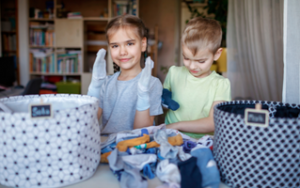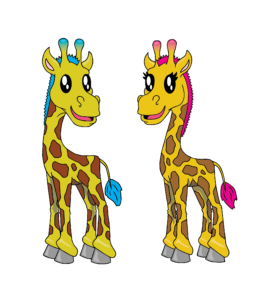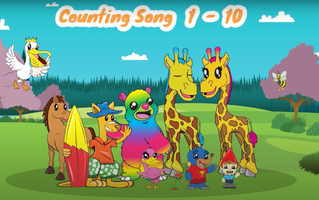Welcome to Explore Imagineland!
Rexzy Rabbit, Fuzzy Wuzzy, Ace the Horse who will we meet next? A host of original characters including the Imagineland kids, Alex, Amy, Daniel, and Sophia ignite creativity and learning for little ones around the world. Little learners love to sing, dance, learn and play. Imaginations flourish and new developmental skills are fostered. In Imagineland we want to promote a world of harmony and belonging for our early childhood learners.
Sharing Harmony in the Early Years
 Research suggests, according to May Ling Halim, associate professor of psychology at California State University, Long Beach. Also, Sarah Gaither, assistant professor psychology and neuroscience at Duke University. That babies as young as three months can distinguish faces by colour. And 3-year-olds are fully capable of understanding racial categories, and even the hierarchies that come with them. So, how can we share harmony with our early years learners?
Research suggests, according to May Ling Halim, associate professor of psychology at California State University, Long Beach. Also, Sarah Gaither, assistant professor psychology and neuroscience at Duke University. That babies as young as three months can distinguish faces by colour. And 3-year-olds are fully capable of understanding racial categories, and even the hierarchies that come with them. So, how can we share harmony with our early years learners?
The trick is to accept that this categorization is normal and to keep it from mutating into racism. This is where the adults in children’s lives come into play! Adults must be the role model. That is non bias – they must spread love and kindness and not display judgement. We want to share harmony if we want children of the future generations to show no bias and not judge one another on their looks, accents, and culture.
As the month of promoting ‘Harmony’ comes to a close, we are still seeing more unrest and unkindness in our world. Now is the time to act. It’s time for everyone to start to show one another kindness. Become a role model of good behaviours for children, yes they will notice. Also, don’t forget to acknowledge that we are all special and unique. Reinforce that we all belong!
Listen to our unique Belong Song, released on Explore Imagineland here –
Happy Learning 😊
Have you read our blog?

The benefits of routines for the early years.
Ok, what is a routine?
Firstly – let’s define the word “routine” – Oxford Dictionary states routine as – ‘the normal order and way in which you regularly do things’. Let’s now look at the benefits of establishing routines in the early years.

Who shall we meet today?
Gangly and Gorgeous! Gangly and Gorgeous live on the African Savannah and they love to dance and make new friends! But most of all, Gangly and Gorgeous love to tell jokes.
Fun Fact!
Did you know, and we’re thinking that you probably do – Giraffes are the tallest mammals on earth? You don’t see giraffes drink much as they get most of their water from the plants they eat. Another fun fact, no two giraffes have exactly the same pattern, a bit like our finger prints really. Can you notice if Gangly and Gorgeous have the same pattern on their skin?
A note from Dr Charles Margerison

Imagineland and Positive Psychology
In Imagineland, early learners find stories set to music that guide and encourage them to be curious about the songs and stories.Imagineland is a wonderful virtual world, where early learners can be inspired, and have fun.
See you in Imagineland!🌞
YouTube meet Imagineland! 
Discover our favourite songs and character interviews, the Explore Imagineland YouTube channel is live, don’t forget to subscribe! Here your early learner can sing, dance, listen and learn with their favourite Imagineland characters. If you haven’t already, go and check it out. Click the button below!
Get in touch!
Be sure to reach out to our team if you have any questions or queries. You can get in touch here…
hello@eilemail.wpenginepowered.com
Until Next time, Keep Smiling!🌈


